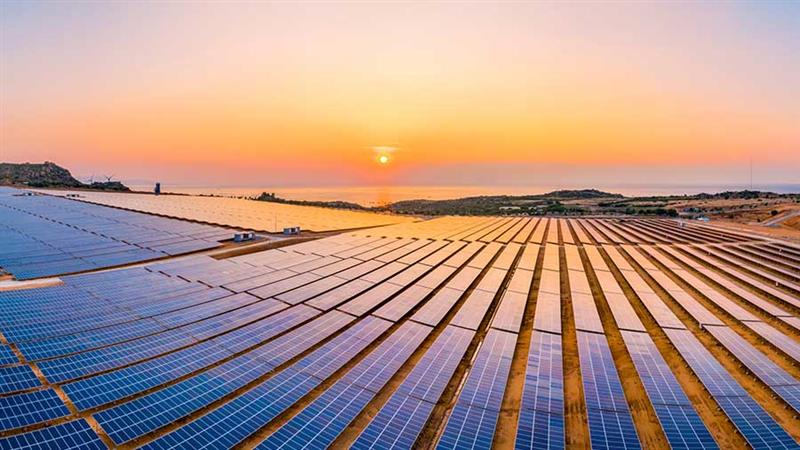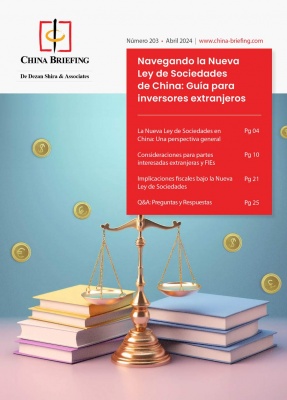Structuring foreign invested enterprises
By Zoe Zhou/Dezan Shira & Associates
GUANGZHOU, Sept. 18 – To establish and operate a foreign invested enterprise (FIE) in China is a time consuming and sometimes frustrating experience for a lot of foreign investors. Good pre-investment due diligence and proper business structuring will help to minimize the negative elements and make the whole process more efficient.
Industry policy
Although most industries have gradually opened up to foreign investment following China’s accession to the WTO, there are some areas which remain restricted or even off-limits to foreign investment. The Provisions on Guiding the Orientation of Foreign Investment and Catalogue for the Guidance of Foreign Investment Industries are two of the most important documents Beijing uses to shape investment on a national level. The two documents classify all industries to four main categories: encouraged, permitted, restricted and forbidden.
In practice, some cities and industrial parks also have their own catalogue for the guidance of foreign investment, which will also need to be respected by foreign investors. These local catalogues are written to either support the local economic planning, or promote or protect an areas special attributes – for example a zoological weakness. Although these catalogues may lack a strict legal basis or follow proper legal procedures, they are of huge practical influence and should not be neglected.
One special point that needs to be mentioned is that sometimes industry policy is not totally in conformity with trade policy. This could be seen recently in the reforms on processing trade. The national FDI industry policy was last updated in 2004; from 2006 the central government started a substantial adjustment on export tax rebates and also the restricted and forbidden catalogue for processing trade. So while some industrial sectors belong to the encouraged category according to the FDI policy, they now fall within the prohibited industrial sectors as stated by the recent processing trade restrictions.
Industry limitations are compulsory requirements. Although some companies may bypass these through proxy or contractual arrangement, the effectiveness of these contracts or arrangements are always limited due to the illegal nature of the of a deal purposely established for the main aim of bypassing compulsory laws. A strict foreign exchange system also makes it difficult for the real investor to share the profits while at the same time baring joint liabilities for any wrongdoing the proxy may participate in.
Location
When considering the location of the investment, foreign investors usually will select the location out of commercial consideration, e.g. client basis, industry distribution, logistics, etc.
However, there are also legal elements to be considered as well. China has a very complicated land and real estate system. Foreign investors are not allowed ownership of the land but can only gain land use rights for a limited period of time. Land is classified as either state land or collective land, and within these categories, is divided according to function: residential land, agricultural land, construction land, commercial land. A building on the land will naturally have the same purpose of use with the land it is on. In recent years, more and more local governments have been enforcing stricter management on real estate and requiring that the actual use of the land be in accordance with the planned purpose of use. Usually, residential buildings are not allowed to be used as the registered address of an FIE. Although a manufacturing company is allowed to be registered in a commercial building, the real production facilities must be located in a separate industrial zone.
Besides the nature of the land, some industries are also prohibited in certain environmentally sensitive areas. Some industrial parks are selective on the investment density of the FIE based on their own minimum per-square meters investment amount. Some parks also plan for a certain industry only. There are also some regional minimum capital requirements in some cities.
After confirming the nature of the place and excluding any other possible special limitations, a foreign investor may consider either renting or buying the office or factory. In both cases, it is very important to understand who is the true owner and if the related contracts are signed and filed to the government in the proper way. State-owned land use rights can be granted by local land bureau or obtained from the owners of the rights. Collective land use rights are not allowed to be granted or sold to foreign investors unless properly transformed into state owned land, with some exceptions due to recent changes in the local regulations of some provinces including Guangdong province.
It is wise to consult with professionals before signing any agreement on granting or transferring land use rights. A defective land-related contract may result in delay or unavailability of the property certificate, failure of an FIE registration, environment evaluation report or fire control examination and therefore negatively impact on the success of the FIE.
Capital
China’s FDI laws set the required amount of authorized capital and a foreign invested company may pay up its total amount of registered capital by installments within a certain time period. There are two concepts involved in the capital system for foreign invested enterprises: registered capital and total investment. The total amount of investment of a foreign-capital enterprise refers to the total amount of funds required for opening the foreign-capital enterprise, i.e. the sum total of the funds invested in capital construction in accordance with the operation scale and the circulating funds for production. The registered capital of an FIE refers to the total amount of capital registered with the administrative department for industry and commerce for the purpose of establishing the foreign-capital enterprise, i.e. the total amount of investment that the foreign investor undertakes to contribute. To control the scale of foreign exchange inflow (foreign debt), there is a statutory ratio between the registered capital and total investment; the total amount of foreign debt by an FIE should not exceed the gap between total investment and registered capital.
The limitation on financing abroad makes it necessary for foreign investors to plan in advance the total amount of start-up expenses and then decide the registered capital and total investment accordingly. The capital usually should be able to sustain the enterprise until it may fund itself. Insufficiency of capital may lead to a break down of flowing funds. Adequately funding an FIE is essential as it is usually not easy for a foreign invested company which is still in the preparatory stages to obtain loans from a Chinese bank and it usually takes about a month perform a foreign debt registration and borrow abroad. Increasing registered capital may take even longer.
When considering capital requirements, industry specific requirements should also be considered. For example, the minimum registered capital requirement for a wholly foreign invested traveling agency is RMB4 million. Minimum registered capital requirements also exist for banks, telecommunication enterprise, theaters, and international forwarders to name a few.
Although theoretically there is national uniform minimum standard on FIE registered capital, many cities and industrial parks have their own higher standards. These standards may not be widely published and therefore need to be determined before investment. It is quite hard to bypass the local capital requirements by setting up a main office in a region with lower requirements and having branches in the region with higher requirements. The city of Dongguan is quite famous for its extremely high capital requirements, some foreign investor choose to set up their main office in Shenzhen and then have a branch locally in Dongguan. This method however, does not work well for trading companies. Since the main office is only a shell to enable the branch setup, there is no real business activities going on in the main office and no staff available there. Because of this, it will not be granted the status of general VAT payer. However, although the Dongguan branch meets all the essential requirements for a general VAT payer, as a branch, it is not allowed to apply for general VAT payer. This arrangement then leads the company to lose tax benefits.
The form of capital contribution is also a very sophisticated topic for foreign invested enterprise. Cash, equipment and land are the most commonly used form of capital contribution. The percentage of cash contribution should not be less than 30% of the total registered capital. Usually, it is Chinese party of a Joint Venture using land to make capital contribution. If equipment contribution is intended, a pre-investment research on the relevant evaluation requirement, import/export policy and procedures will help to prevent any delay or failure of the equipment contribution. Shares contribution or debt contribution are still new topics in China and in the field of foreign investment, both the legislation and the practice is still quite prudent.
Business Scope
Due to the limitation on industry entry by foreign investor, it is not possible for a foreign investor to apply for a broad and general business scope. The business scope of a FIE should indicate clearly the nature of the business. The business scope will decide the capital requirement, approval authority and also name of the company. A carefully drafted business scope should also take into the tax indication of the wording. For example, an U.S. engineering company plans to set up a subsidiary FIE in China to help with after-sales maintenance of its products. In this case, if the business scope of the company contains the word maintenance, the FIE will be able to apply for VAT invoicing and also be allowed to buy parts and accessories used during the maintenance process. It cannot however, invoice to the mother company since it is not reasonable for it to provide such type of maintenance to the mother company. If the business scope is drafted as technical service, the FIE will be allowed to apply for business tax invoicing to charge both clients and the investor, but will not be allowed to buy spare parts. The most favorable option then would be to put both maintenance and technical services together into the business scope to leave the biggest possible room for the operations of the business – this will not cause additional obligation on capital or other aspects.
Investor
Another important aspect of structuring the FIE is to consider from where should the capital come from. Hong Kong and some other regions provide a good stepping stone for investors Due to its geographical proximity and the special position as a Special Administrative Region, Hong Kong is the most popular one. Double taxation avoidance agreements between the mainland and Hong Kong as well as the Closer Economic Partnership Agreement (CEPA) make the city quite beneficial to investors. Simple procedures for setting up companies and the ability to transfer shares also attract some investors to use a Hong Kong holding company to facilitate possible mergers and acquisitions in future. Hong Kong holdings can also be used to structure joint ventures to avoid the strict regulations and government examination of joint venture contracts on the mainland. However, Hong Kong is not always a good choice as it is blacklisted by some European countries.
Time frame
The time frame also needs to be considered when planning to start a foreign invested enterprise. The whole process will involve document preparation, submitting documents to different government departments, opening a bank account, injection and verification of capital. If the capital injection involves equipment or intellectual property, the time required for transportation from abroad and performing customs procedures should be carefully calculated and confirmed to avoid unexpected delays. In practice, the whole process will depend greatly on the response from government authorities. A thorough investigation into the local practice will help to smooth out the whole process. A typical foreign invested enterprise will take around four months from the start of document preparation to be fully operated.
Investment in some industries requiring special approval from industry authority will make the whole process even longer. A typical example is the car distribution industry. Since foreign car distributors can only set up foreign invested car distribution enterprise after obtaining approval from Ministry of Commerce, the lengthy procedure of approval can stretch the entire setup process, and automobile distributors can wait for two years to become fully operational.
Conclusion
This is only a general introduction to some key issues involved in the establishment of foreign invested enterprises. To successfully establish a foreign invested enterprise, an investor needs to consider many more aspects in great detail. Good market research, tax planning and financial appraisal also need to be performed. With the recent reform of the state-owned land grant mechanism, it is expected that for manufacturing companies, the process and cost of obtaining land will be greatly increased. Environmental protection costs and its impact on the establishment process is also another element investors need to consider. China’s legal system is evolving quickly and investors will need to keep an eye on the new changes and adapt to them.
Further details on the registration of foreign invested commercial enterprises may be downloaded from this month’s edition of China Briefing.
- Previous Article Listing Chinese companies: Mandatory welfare payment liabilities – Whose authority counts?
- Next Article Government blessings on investment a good thing?
























